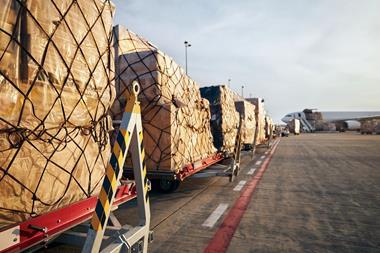Freight forwarder association FIATA has given its backing to IATA’s Cargo Handling Manual in a move they hope will create efficiencies in airport operations through the use of a consistent set of global standards.
The two groups said that the endorsement of the manual comes after one year of process of discussions, review and collaboration.
By adopting these standards, freight forwarders, airlines and ground handlers will “better align their operations, by leveraging their respective expertise in order to improve efficiency across the supply chain”, IATA and FIATA said.
The ICHM provides standardised procedures for airlines, ground handling agents (GHAs), and freight forwarders.
“FIATA’s endorsement of the ICHM supports IATA’s goal of creating a safer, more efficient air cargo industry. Standardisation of procedures reduces risks, enhances operational performance, and improves efficiency. Importantly, all of this brings enormous benefits to the global supply chain and the millions of businesses and people that depend on it,” said Brendan Sullivan, IATA global head of cargo.
Stéphane Graber, FIATA director general, added: “FIATA has worked closely with IATA in reviewing the ICHM, providing valuable input to ensure that it addresses the specific needs of freight forwarders of all sizes around the world, including the SMEs.
“The result is a set of standardised procedures that will enable faster, more efficient processes, while also improving service to shippers. Crucially, FIATA prioritises safety and security, and this collaboration ensures that these key aspects are embedded throughout the handling procedures. This strengthens mutual recognition across stakeholders, driving operational efficiency, safety, and cost savings throughout the supply chain.”
At the start of the year, IATA updated its industry manuals for cargo and ground-handling operations, with more than 300 updates made.
Some of the major changes in terms of cargo include those made to regulations related to live animals, perishable cargo, temperature-controlled cargo, operational risk assesment, and ground handling training and procedures.














